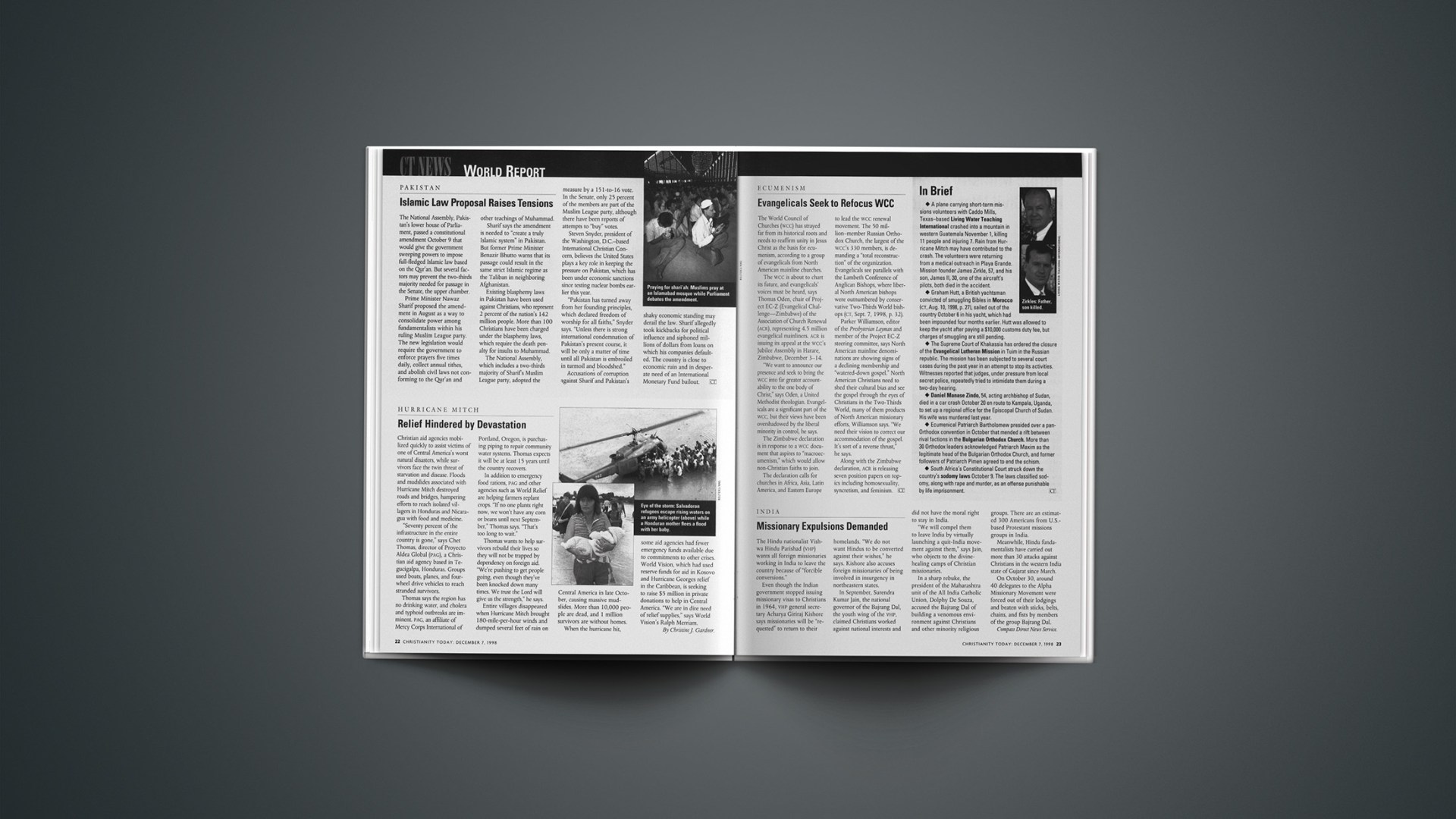The World Council of Churches (WCC) has strayed far from its historical roots and needs to reaffirm unity in Jesus Christ as the basis for ecumenism, according to a group of evangelicals from North American mainline churches.
The WCC is about to chart its future, and evangelicals’ voices must be heard, says Thomas Oden, chair of Project EC-Z (Evangelical Challenge—Zimbabwe) of the Association of Church Renewal (ACR), representing 4.5 million evangelical mainliners. ACR is issuing its appeal at the WCC’s Jubilee Assembly in Harare, Zimbabwe, December 3-14.
“We want to announce our presence and seek to bring the WCC into far greater accountability to the one body of Christ,” says Oden, a United Methodist theologian. Evangelicals are a significant part of the WCC, but their views have been overshadowed by the liberal minority in control, he says.
The Zimbabwe declaration is in response to a WCC document that aspires to “macroecumenism,” which would allow non-Christian faiths to join.
The declaration calls for churches in Africa, Asia, Latin America, and Eastern Europe to lead the WCC renewal movement. The 50 million-member Russian Orthodox Church, the largest of the WCC’s 330 members, is demanding a “total reconstruction” of the organization. Evangelicals see parallels with the Lambeth Conference of Anglican Bishops, where liberal North American bishops were outnumbered by conservative Two-Thirds World bishops (CT, Sept. 7, 1998, p. 32).
Parker Williamson, editor of the Presbyterian Layman and member of the Project EC-Z steering committee, says North American mainline denominations are showing signs of a declining membership and “watered-down gospel.” North American Christians need to shed their cultural bias and see the gospel through the eyes of Christians in the Two-Thirds World, many of them products of North American missionary efforts, Williamson says. “We need their vision to correct our accommodation of the gospel. It’s sort of a reverse thrust,” he says.
Along with the Zimbabwe declaration, ACR is releasing seven position papers on topics including homosexuality, syncretism, and feminism.
Copyright © 1998 Christianity Today. Click for reprint information.










